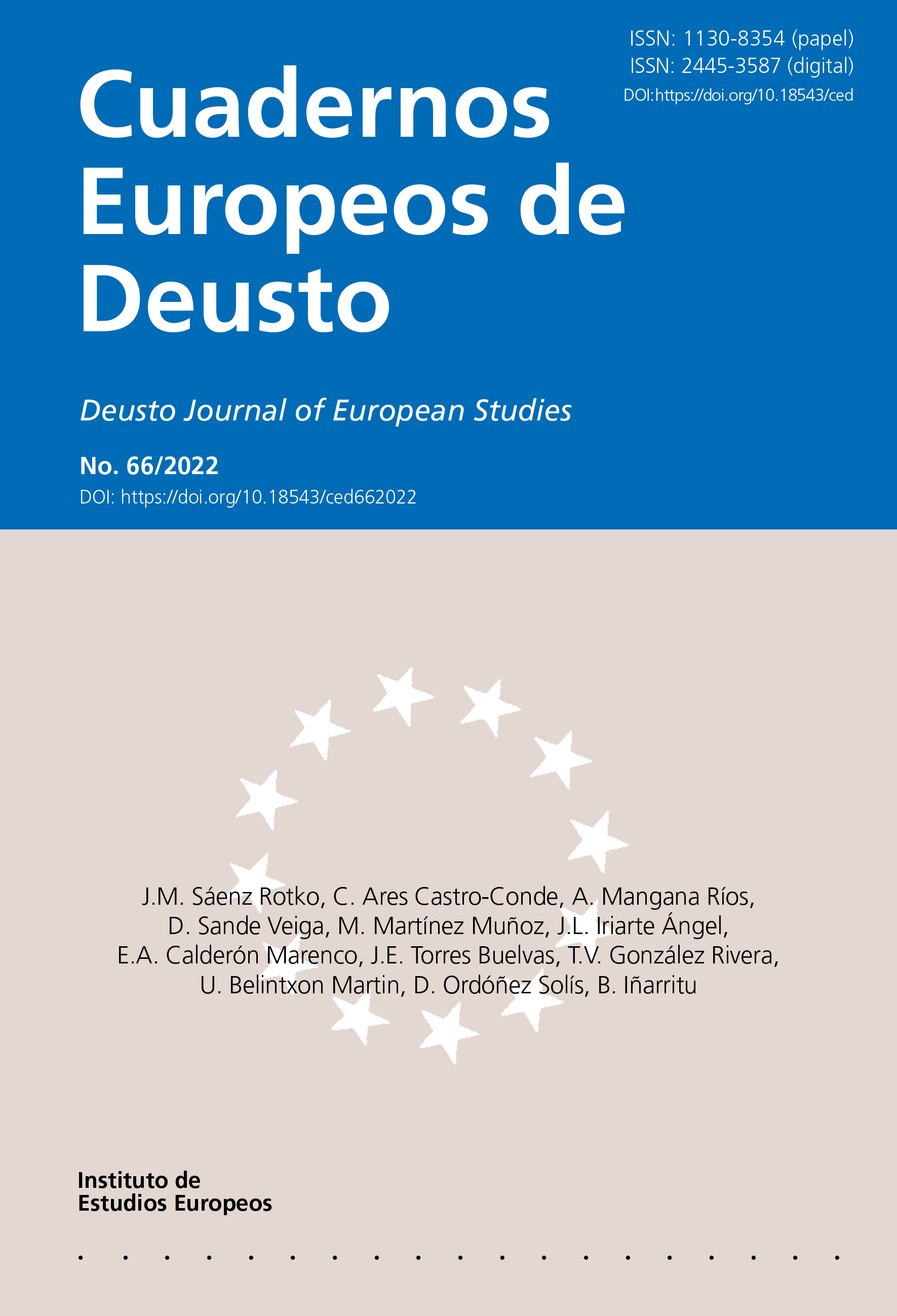Elections to the European Parliament and national parties’ manifestos: exploratory study of Spain (1987-2019)
Abstract
After two elections to the European Parliament hold, in 2014 and 2019, once the Lisbon Treaty entered into force, in December 2009, it is time to make some progress on the examination of the role of the national parties, the Europarties and the political groups in the European Parliament regarding the shaping of preferences on EU issues and their translation into policy outputs at the supranational level of the political system of the EU through the Parliament. This piece of work shares data delivered by an exploratory study on Spain, which analysed 68 manifestos issued by parties and coalitions that achieved representation from 1987 to 2019 in the only EU institution that is directly elected by all citizens. The extent of these texts as well as the references contained within them to the Europarties, their candidates for President of the European Commission (Spitzenkadidaten) —from 2014 onwards— and the political groups in the European Parliament are examined. The preliminary study on Spain let us know this case concerning the abovementioned variables, make some observations on the European elections as a chain of delegation that is increasingly relevant due to the empowerment of the Parliament within the EU institutional setting, and formulate hypotheses for comparative research projects that embrace various Member States.
Received: 06 September 2021
Accepted: 25 February 2022
Downloads
The author grants to the Publisher the distribution, public communication, and reproduction rights of her/his work subject of publication in Deusto Journal of European Studies (DJES), whichever the media may be, including the permission to include it in the databases where this Journal is indexed and in the institutional repository of the Universidad de Deusto.
Upon its publication, the content of any Issue of Deusto Journal of European Studies (DJES) can be accessed, read, downloaded, copies, and distributed freely for non-commercial purposes and in accordance with any applicable copyright legislation.
The content of Deusto Journal of European Studies (DJES) can be subsequently published in other media or journals, as long as the author clearly indicates in the first footnote that the work was published in Deusto Journal of European Studies (DJES) for the first time, indicating the Issue number, year, pages, and DOI (if applicable). Any other use of its content in any medium or format, now known or developed in the future, requires prior written permission of the copyright holder.
The content of the work published in Deusto Journal of European Studies (DJES) is each author's sole responsibility. The authors assume the responsibility of obtaining all the necessary licenses for the reproduction in their manuscripts of any text, material or illustration coming from another author, institution or publication. The liabilities that may arise from complaints for publishing plagiarised articles are the sole responsibility of the author.


3.jpg)
2.jpg)
2.jpg)
2.jpg)
2.jpg)
2.jpg)







